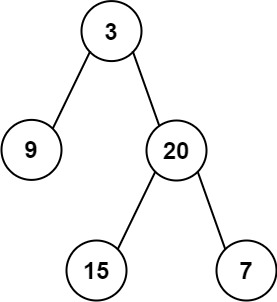404. Sum of Left Leaves
Description
Given the root of a binary tree, return the sum of all left leaves.
A leaf is a node with no children. A left leaf is a leaf that is the left child of another node.
Example 1:
1 | Input: root = [3,9,20,null,null,15,7] |
Example 2:
1 | Input: root = [1] |
Constraints:
- The number of nodes in the tree is in the range
[1, 1000]. -1000 <= Node.val <= 1000
Hints/Notes
- N/A
Solution
Language: C++
1 | /** |